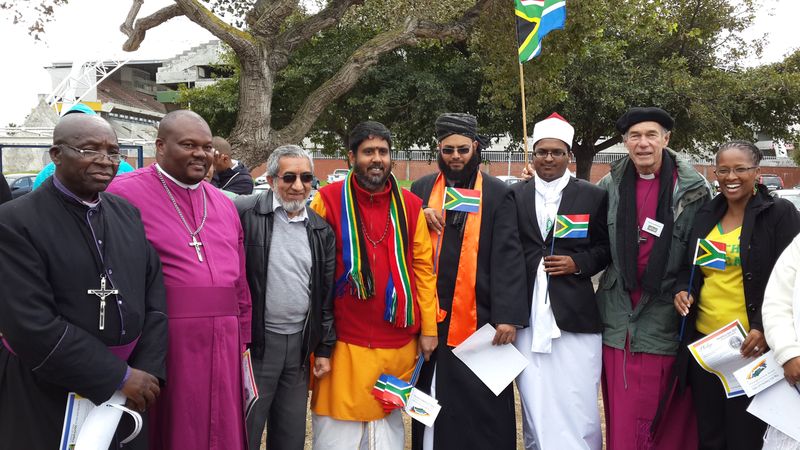What does Nature want?
- Published:
Human wants are well articulated, marketed and even expanded to a position of status. Most are ultimately provided by Nature: the landscapes whose scale, seasons and sense of place provide many of our spiritual needs; the raw materials that we process and combine into the multitudinous food and material products that feed us and our economies. But what does nature want?
Nature, writes Charles Eisenstein, is composed of interdependent systems within systems within systems. So is human society. So are our bodies. “Wanting,” he explains is a call for a relationship.” A relationship of interconnection and of understanding that the well-being of one depends on the wellbeing of all – the origin of UBuntu (I am because you are). We and all living beings are part of one interconnected sacred system.
We see species going extinct and ecosystems suffering damage, yet somehow nature appears to bounce back. But there are changes, from almost imperceivable to dramatic. Nature’s ability to bounce back depends on the health of the key species and a rich diversity of interspecies connections. Together these and critical elements such as energy and unpolluted water and air build a resilient web of life. We have clear human parallels. When leading personalities die or disasters destabilise a community the extent of the healing depends on the relationships within and between the communities, the Ubuntu.
The more we learn about nature the greater its mystery. We cut down a forest here, lay out a plantation there and tell ourselves that through our balancing of the net carbon dioxide we have made good. When we replace Nature’s eco-systems with man made ones we do not replace the complex relationships. We simply do not know how to replace the sacred scaffolding of Nature refined over billions of years of which we too are a part.
The result of Nature’s interconnectivity is “An invisible web of causality connecting every place on Earth,” writes Charles Eisenstein. Increased CO2 emissions and the global impacts on the web of life from the bleaching of coral reefs, the increasing severity and frequency of storms and droughts to the melting of ancient ice caps and the tundra are well documented examples.
Nature wants, and for our own physical and spiritual wellbeing, we need to return to a relationship of respect. The `invisible web of connectivity’ requires that we reconnect with each other as well as with the natural environment. This is a team effort where compassion and connection replace competition – as a way of life - not just on Madiba Day or on outings to Nature. Not an easy ask at this time in our history with 7 billion people and where the competition for material status has become such a well marketed and prized symbol of success. A smug belief in ‘survival of the fittest’ as a justification for material excess is a gross misunderstanding of nature’s processes and the antithesis of UBuntu.
Nature’s `wanting’ is being heard, belatedly but by increasing numbers of people. Nelson Mandela who personifies reconciliation and connection said: “It always seems impossible until it is done.”
Strong new voices are emerging, most recently, the call of Pope Francis in his encyclical for the environment and a New Bottom Line. He is calling for all of us to treat each other as fellow citizens and not as units of production and consumption or as excess baggage on spaceship earth. His call challenges us to treat others as equally entitled to share in the earth’s benefits and to be equally responsible for protecting the earth.
July is Madiba Month with International Mandela Day on Saturday 18 July. On this day, in places far and near people will be creating a visible web of connectivity through concrete actions to spread peace and compassion. This connection was beautifully represented by the ‘Mandela Chain’ in 2013 when people across the generations, from many faiths and walks of life held hands to create long chains that linked communities.
SAFCEI invites all Earth Keepers to pay our goodwill forward through actions that celebrate and restore the sacred scaffolding of human society and of Nature. It is in our hands! Please share your stories of Mandela day actions on Facebook and the Earth Keeper website by emailing them and photos to sarah@safcei.org.za.
Kim Kruyshaar for SAFCEI June 2015 For info about Mandela Day http://www.mandeladay.com/
Who we are

SAFCEI (Southern African Faith Communities’ Environment Institute) is a multi-faith organisation committed to supporting faith leaders and their communities in Southern Africa to increase awareness, understanding and action on eco-justice, sustainable living and climate change.
Featured Articles
-

South Africa: Who Ends Up Paying If DMRE Cooks the Price of Nuclear Power?
-

South Africa’s nuclear energy expansion plans continue to draw criticism, environmental NGOs chew over legal challenge
-

Earthlife Africa and SAFCEI respond to latest unsettling nuclear news regarding the ministerial determination
-

Open Wing Alliance Africa (Virtual) Summit 2023
-

The Green Connection and SAFCEI respond to energy minister's divisive and deflecting comments
-

Job Vacancy: FLEAT Coordinator







